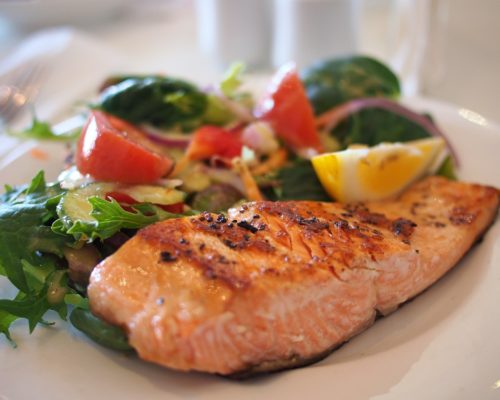What Is Fasting?
Fasting for the sake of health and beauty is a concept that has been revived recently. It is probably one of the oldest ways in history to control food intake. Fasting might be present in a broad spectrum of regimens that ranges from a trivial adjustment of your routine diet all the way to absolutely nothing per mouth.
Starvation is not fasting. Starving is a compulsory withholding of all kinds of food and drink for an undetermined period of time. Furthermore, it’s an uncontrollable situation where you can’t choose which items to ban.
Intermittent fasting is part of your everyday practice. For example, if you stop eating after dinner up to the next morning’s breakfast, that would be approximately 10 to 14 hours of fasting.
Fasting for Health: How Does It Work?
Insulin is the key hormone that promotes storage of digested food in the form of fat. When you fast, your pancreas stops releasing insulin.
Thus, your body must break down fat to provide the energy needed for daily activities. In other words, if you eat all the time without fasting, your body might not burn fat.
What Kinds of Fasts Are There?
Fasting could be based on either time restriction or item restriction. The latter could be in the form of being vegetarian, vegan, pescatarian, or flexitarian.
Vegans are more strict than vegetarians; they don’t eat animals or animal products. In other words, they don’t consume milk, butter, honey, and eggs as they are derived from animal sources.
Pescatarians don’t eat poultry or beef, but fish and seafood are acceptable. Flexitarians, as the term implies, is the most flexible group, and they eat red meat sparingly.
Time-restricted fasting could extend from a couple of hours to days. A good analogy would be medical fasting for the sake of undergoing surgery or blood withdrawal.
In order to fast for laboratory testing, you have to stop eating (drinking plain water is okay) for a period that ranges from 6 to 14 hours based upon the blood test. If you want to fast for surgery under general anesthesia, you have to stop eating for at least eight hours. However, you are allowed to take fluids through your veins.
Remember that taking intravenous fluids of any kind breaks your fasting according to some religious methodology.
What Are the Pros and Cons of Intermittent Fasting?
The bottom line is that fasting, of one kind or another, should be part of everyone’s life. In addition, it is a lot more valuable than you think.

You may also like: BEST (AFFORDABLE) VEGAN BRANDS THAT MAKE FOR DELICIOUS MEALS
Pros of Fasting for Health
Spiritual gains are beyond the scope of this article. But there are several proposed physical gains that come from intermittent fasting. One of the most common is losing weight. It works by changing when to eat rather than how much you eat.
The rationale is that by blunting the insulin surge that comes after every meal, your body has to burn fat for energy expenditure instead of sugar.
Fasting may also be beneficial in the reversal of Type 2 diabetes, improvement in mental clarity, focus ability, meditation, encouragement of discipline, and self-control.
Cons
The downside of fasting may include headaches, dizziness, muscle cramps, and hunger.
Feeling hungry is what everyone fears the most. It’s important to point out that hunger comes and fades away like a wave. Therefore, don’t feel devastated by hunger; it won’t last long.
Fasting is not designed to destroy muscles. Muscle cramps that might occur during fasting are related to temporary electrolyte disturbances.
Some tips that can help you overcome fasting hassles:
* Stay busy and live normally
* Drink plenty of water
* Fast with a group of people
* Drink sugar-free white coffee
Is Fasting for Everyone?
Medically, no. Be aware that fasting might do more harm than good for some people.
In other words, fasting is not for you if you are underweight, have unadjusted blood sugar, take medications, or if you are a child or a frail senior.
Final Thoughts on Fasting for Health – Three Pearls for Healthier Fasting:
1. You have to repeat it over and over until your target weight is achieved.
2. Break your fast if you feel unwell.
3. Break your fast wisely. Don’t ruin your fast by eating a heavy meal. It’s recommended that you have a modest, healthy meal that contains lean proteins, healthy fats, fruits, and plenty of water.





